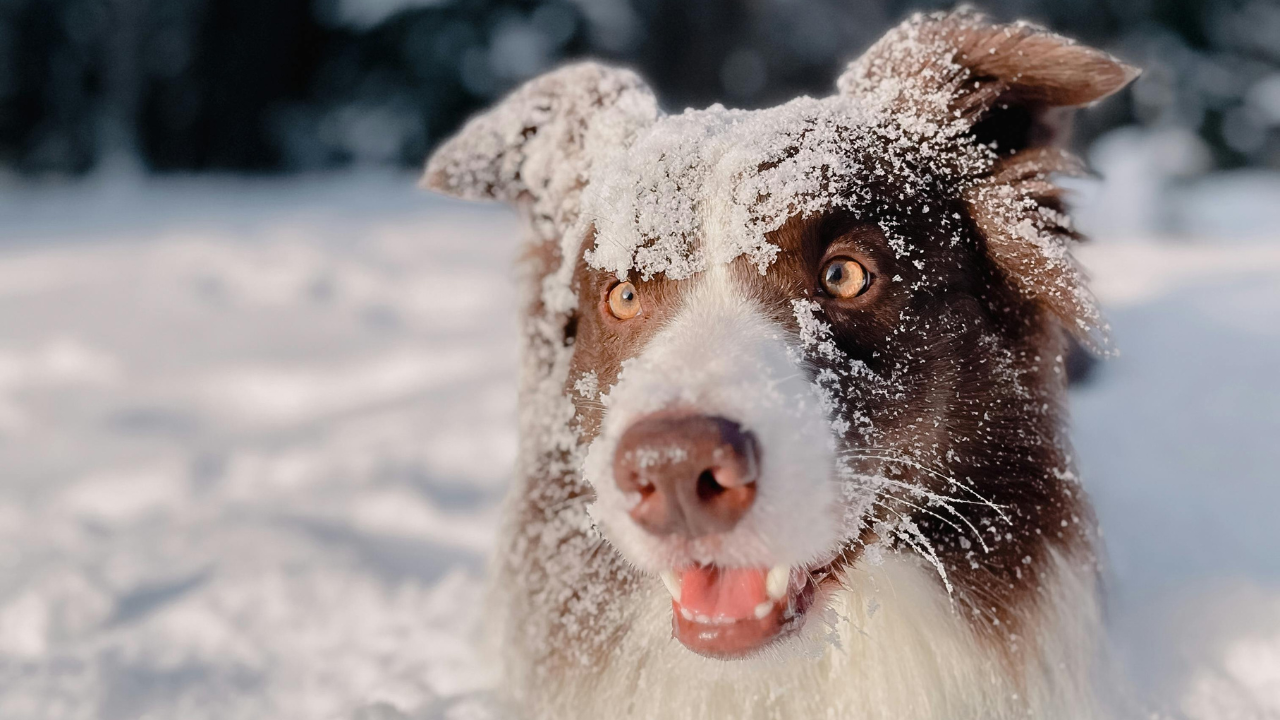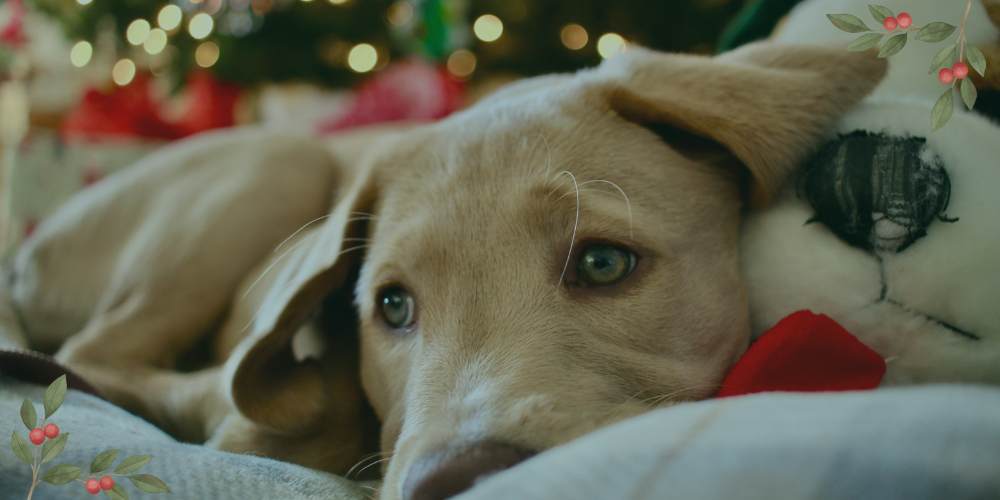As the temperatures drop and winter weather sets in, our pets rely on us more than ever to keep them warm, comfortable, and healthy. Just like people, animals can be affected by cold, ice, and seasonal hazards — but with a little preparation, you can ensure your furry family members stay safe and happy all winter long. Here are our top considerations for keeping pets safe in winter.
Keep them warm and dry
Dogs & cats
This may seem obvious, but not all pets cope with the cold as well as others. As a general rule of thumb, short-haired breeds, older pets, very young or those with health issues are especially sensitive to low temperatures. For these pets, you may like to consider an extra layer, such as a coat (especially in the rain) whilst out walking, and even breaking their walks into shorter chunks, which will help their wellbeing. Similarly, should your pet get wet, ensure they dry off properly to avoid catching a chill.
If your pet suffers from arthritis, for example, they will be more susceptible to the cold even inside. Ensure they have a warm bed to rest their joints, preferably away from a draft and maybe even near a heat source such as a radiator.
Small furries
For small furries, such as rabbits or guinea pigs, who may live outside, they will need extra support at this time of year. Their home will need adaptations to ensure it is waterproof and damp-proof. During storms, if you are unable to bring their hutch into a well-ventilated shed or garage, you may like to turn it away from the elements to stop rain from blowing in or use a sheet to provide extra protection. They must have a completely sheltered area with extra bedding for warmth, too. Don’t forget, whilst it may be chilly, small furries still need to exercise and exhibit natural behaviours such as running, so they will still need access to a run for their wellbeing.
Beware of common toxins
Snow and ice may look beautiful, but they can cause problems for pets and can it can be difficult to keep pets safe in winter with so many hazards within easy reach. Salt, grit and chemical de-icers can irritate paw pads and be toxic if ingested (which is easily done when licking paws).
Tips:
- Wipe and ideally rinse your pet’s paws after every walk
- You could consider pet-safe paw balm
- Keep an eye out for cracked, dry or bleeding pads
- Keep antifreeze completely out of paws way and if there are any spills, ensure they are properly cleaned up
Don’t forget there are several toxic plants which sprout this time of year, and that we often use to decorate our homes. Be mindful of where your pet may have access – Mistletoe, poinsettia and holly are commonly found in homes, providing easy access for curious pets.
Water sources
We live in such a beautiful place, for many, it’s a dog’s dream! But during the winter, the cold water can pose quite a hazard. Very cold water or falling through ice can be fatal for pets as they can go into shock very quickly, and it can be difficult for us to rescue them, so keep pets on leads or ideally avoid water sources altogether at this time of year.
If your pet finds themselves in a position where they potentially have hypothermia, here is everything you need to know. Most often, this can happen unintentionally and can commonly be caused by:
- Being in a cold environment, e.g. snow, frost or cold rain
- Getting wet and not being dried properly on a cold day
- Certain illnesses
- Blood loss (for example, if involved in an accident)
If you spot any of these signs, it could be an indication that your pet’s body temperature is dangerously low (hypothermic):
- Shivering
- Appearing drowsy/lethargic
- Pale gums
- Becoming unconscious/collapsing, which can lead to coma
To prevent hypothermia, consider putting a coat on vulnerable pets and, of course, always ensure that pets have access to warm and dry shelter – never leave them outside during the winter. If you suspect your pet may be hypothermic, their body temperature will need to be raised slowly. Call your vet immediately for advice.
Adjust Nutrition and Hydration
Pets burn extra energy staying warm, so some may need a slight increase in food during the winter — especially if they spend a lot of time outdoors (working breeds, for example). However, less active indoor pets may actually need less food to avoid winter weight gain.
Tips:
- Check your pet’s body condition regularly
- Adjust their feeding schedule to support their health
- Ensure fresh, unfrozen water is always available
- Ask our veterinary team if you’re unsure about adjusting your pet’s diet this season
Create a Safe, Cosy Space Indoors
It is worth being mindful that whilst the winter season brings many exciting celebrations for humans, for our pets, it can all be a little overwhelming. Fireworks, changes to routine and even lots of new, unfamiliar people in their home. Creating a safe and cosy space for your pet to retreat to can provide them with an escape should they feel overwhelmed. Ensure any little house visitors respect their area too!
Winter Wellness Check
Finally, you may even like to schedule a winter check-up for your pet. Cold weather can aggravate conditions such as arthritis and joint pain. If your pet seems stiff, slow, or reluctant to move, they may benefit from a wellness exam and pain management plan.
Our team can help with:
- Arthritis assessments, joint supplements, alternative therapies such as physiotherapy, laser or even regenerative medicine
- Weight management and nutrition advice
Winter can be tough on our furry companions, but with a bit of care and preparation, we can keep pets safe in winter. If you have any concerns about your pet’s comfort, health, or behaviour this winter, don’t hesitate to contact us!


